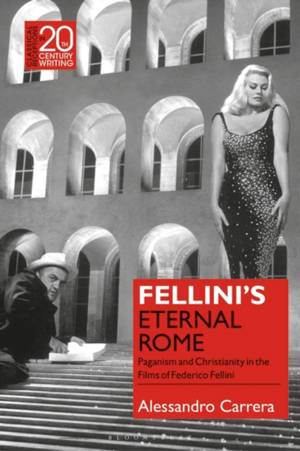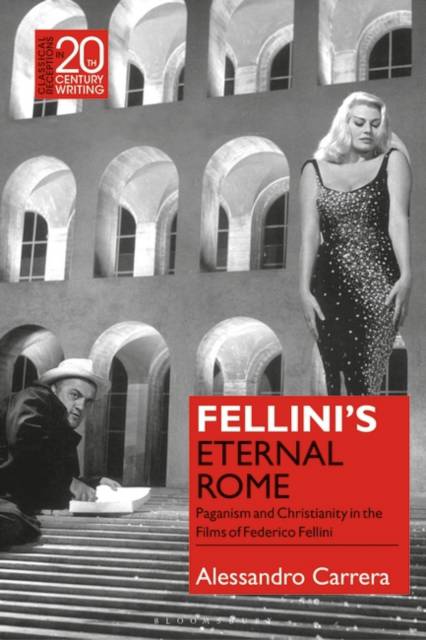
- Afhalen na 1 uur in een winkel met voorraad
- Gratis thuislevering in België vanaf € 30
- Ruim aanbod met 7 miljoen producten
- Afhalen na 1 uur in een winkel met voorraad
- Gratis thuislevering in België vanaf € 30
- Ruim aanbod met 7 miljoen producten
Zoeken
Fellini's Eternal Rome
Paganism and Christianity in the Films of Federico Fellini
Alessandro Carrera
€ 254,45
+ 508 punten
Uitvoering
Omschrijving
*** Winner of the2019 Flaiano Prize in the category Italian Studies ***
In Fellini's Eternal Rome, Alessandro Carrera explores the co-existence and conflict of paganism and Christianity in the works of Federico Fellini. By combining source analysis, cultural history and jargon-free psychoanalytic film theory, Carrera introduces the reader to a new appreciation of Fellini's work. Life-affirming Franciscanism and repressive Counter-Reformation dogmatism live side by side in Fellini's films, although he clearly tends toward the former and resents the latter. The fascination with pre-Christian Rome shines through La Dolce Vita and finds its culmination in Fellini-Satyricon, the most audacious attempt to imagine what the West would be if Christianity had never replaced classical Rome. Minimal clues point toward a careful, extremely subtle use of classical texts and motifs. Fellini's interest in the classics culminates in Olympus, a treatment of Hesiod's Theogony for a never-realized TV miniseries on Greek mythology, here introduced for the first time to an English-speaking readership. Fellini's recurrent dream of the Mediterranean Goddess is shaped by the phantasmatic projection of paganism that Christianity created as its convenient Other. His characters long for a "maternal space" where they will be protected from mortality and left free to roam. Yet Fellini shows how such maternal space constantly fails, not because the Church has erased it, but because the utopia of unlimited enjoyment is a self-defeating fantasy.Specificaties
Betrokkenen
- Auteur(s):
- Uitgeverij:
Inhoud
- Aantal bladzijden:
- 200
- Taal:
- Engels
- Reeks:
Eigenschappen
- Productcode (EAN):
- 9781474297615
- Verschijningsdatum:
- 1/11/2018
- Uitvoering:
- Hardcover
- Formaat:
- Genaaid
- Afmetingen:
- 156 mm x 234 mm
- Gewicht:
- 458 g

Alleen bij Standaard Boekhandel
+ 508 punten op je klantenkaart van Standaard Boekhandel
Beoordelingen
We publiceren alleen reviews die voldoen aan de voorwaarden voor reviews. Bekijk onze voorwaarden voor reviews.







